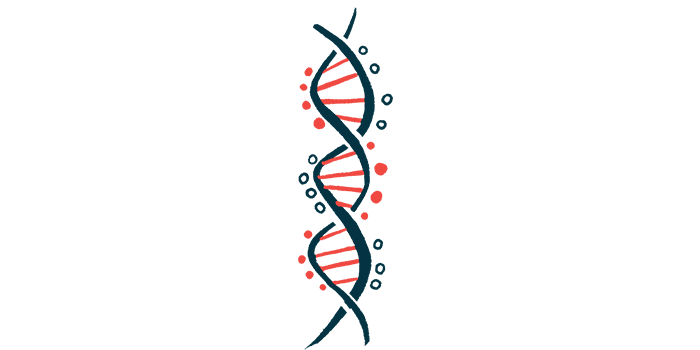PFIC caused by USP53 usually mild form of liver disease: Study
Study found 1/6 of patients with the mutation needed liver transplants
Written by |

Progressive familial intrahepatic cholestasis (PFIC) caused by mutations in the USP53 gene results in a fairly mild form of the disease, with most of PFIC patients carrying mutations in the gene not needing liver transplants, according to a study in India.
“USP53 mutations were the fifth most common genetic variant of PFIC in India and usually led to mild to moderate disease, although one sixth of them progressed to end-stage liver disease requiring [liver transplant],” the researchers wrote.
The study, “Natural course and outcomes of children with ubiquitin-specific protease 53 (USP53)-related genetic chronic cholestasis,” was published in the Journal of Pediatric Gastroenterology and Nutrition.
PFIC refers to a group of rare genetic diseases characterized by impaired production and/or secretion of the digestive fluid bile by liver cells that typically causes cholestasis, or slowed bile flow, in early childhood.
The buildup of bile in the liver can damage the organ and promote bile leakage into the bloodstream, resulting in symptoms including jaundice (yellowing of the skin and whites of the eyes) and itching.
Broken connections
Mutations in the USP53 gene have been shown to cause a type of PFIC. The gene provides instructions to make an enzyme of the same name that’s thought to be essential for neighboring cells to properly stick together.
When this protein is absent or dysfunctional, cell-cell connections may break, bile may leak from the tubes that transport them, slowing bile flow. To date, cases of PFIC due to USP53 mutations have been reported to have low to normal blood levels of gamma-glutamyl transpeptidase (GGT), a marker of liver damage, and mild to moderate liver involvement.
A team of researchers in India described the cases of 29 children with USP53-associated PFIC who were followed as part of an Indian PFIC registry. USP53 mutations were the fifth most common cause of PFIC in the 331 Indian children enrolled in the national registry, affecting 8.7% of them.
“To the best of our knowledge, these 29 cases build the thus far largest series of patients with USP53 deficiency reported in the world,” the team wrote.
The children, 16 boys and 13 girls, had a median age at enrollment of almost 1.5, with ages ranging from nine months to 8.5 years. Most (72.4%) carried the same mutation in both copies of the USP53 gene, while five had a mutation in only one gene copy and three had a different mutation in each gene copy.
Sixty-nine percent of variants were classified as protein-truncating mutations, meaning they result in a shorter, likely non-working, protein.
All but one child (96.5%) experienced jaundice, which developed during the first few months of life in nearly half of the cases. Jaundice resolved within six months in 13 children and within 16 months in eight children, meaning that 75% experienced jaundice resolution at last follow-up.
Itchy skin was reported in 79.3% of the children, and was successfully managed with medications in all but five of them (78.2%). Treatment with ursodeoxycholic acid alone, a standard cholestasis treatment sold as Urso and Actigall that helps bile flow, was effective in most cases when itching was resolved.
More than half of the children in which jaundice was not resolved (57.1%) and 80% of those in which itch was recurrent carried protein-truncating mutations.
In most cases in which these symptoms couldn’t be resolved with medication, the children were listed for liver transplant. As of the most recent follow-up data, 82.7% of the children were still living with their native livers, and six children (20.6%) either underwent liver transplant or were waiting for one.
Overall, the data paint a picture of a relatively mild form of PFIC, the researchers noted.
GGT levels varied greatly among children, with some showing normal levels and others having higher-than-normal levels. The group with protein-truncating mutations had significantly lower GGT levels than those carrying missense mutations, which result in an alteration in a single amino acid, protein’s building blocks.
The remaining clinical findings were generally comparable between groups with either type of mutation, suggesting the absence of an obvious association between genetic and clinical profiles in these cases of USP53-associated PFIC.



